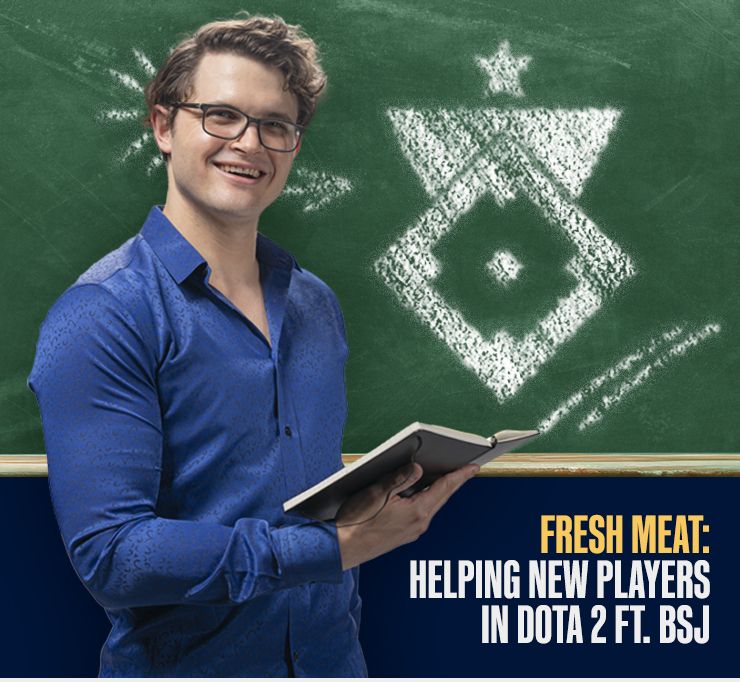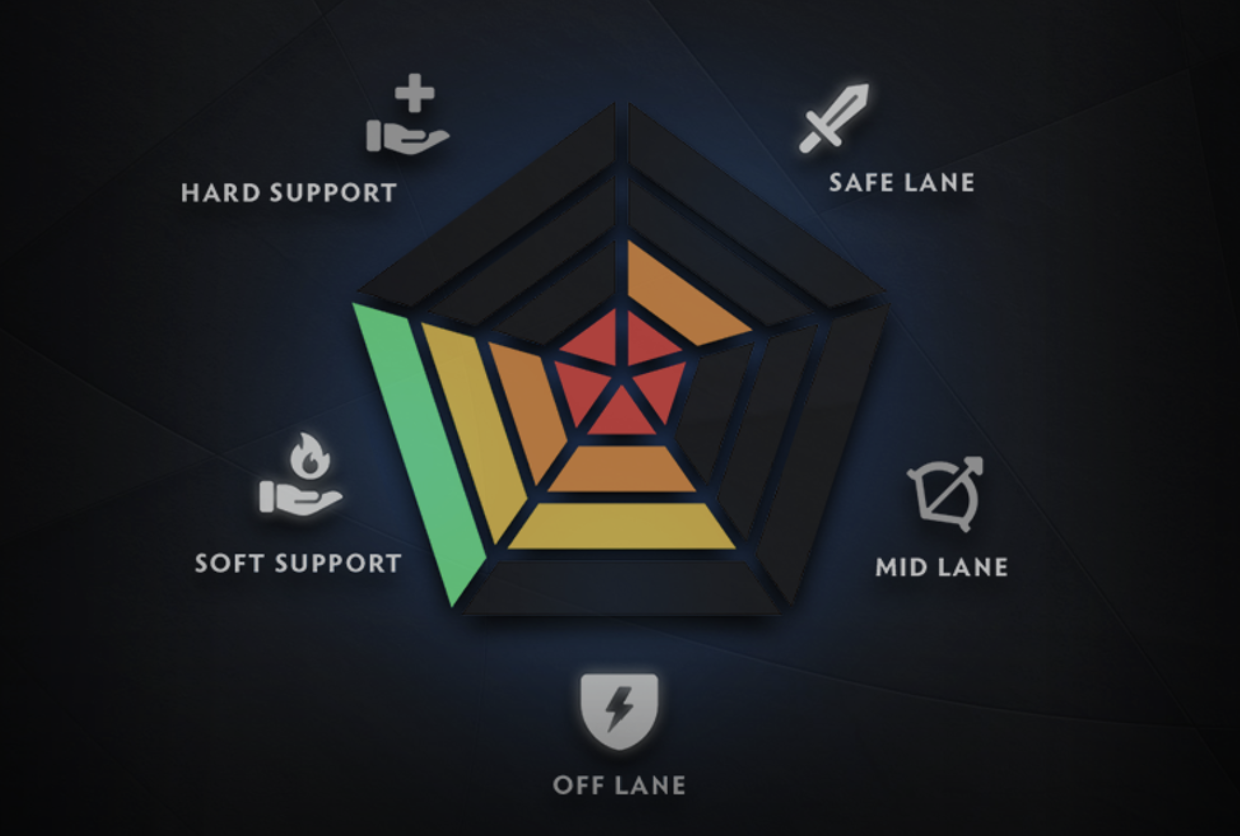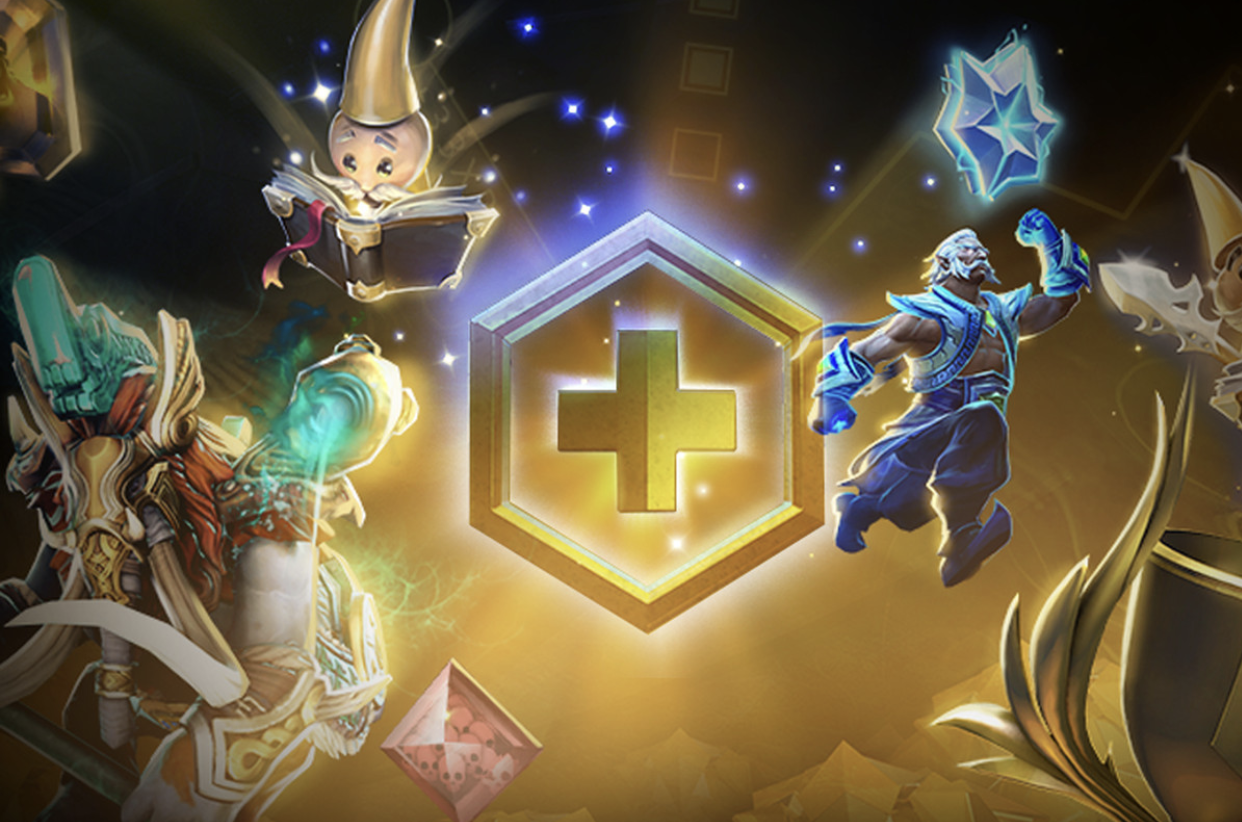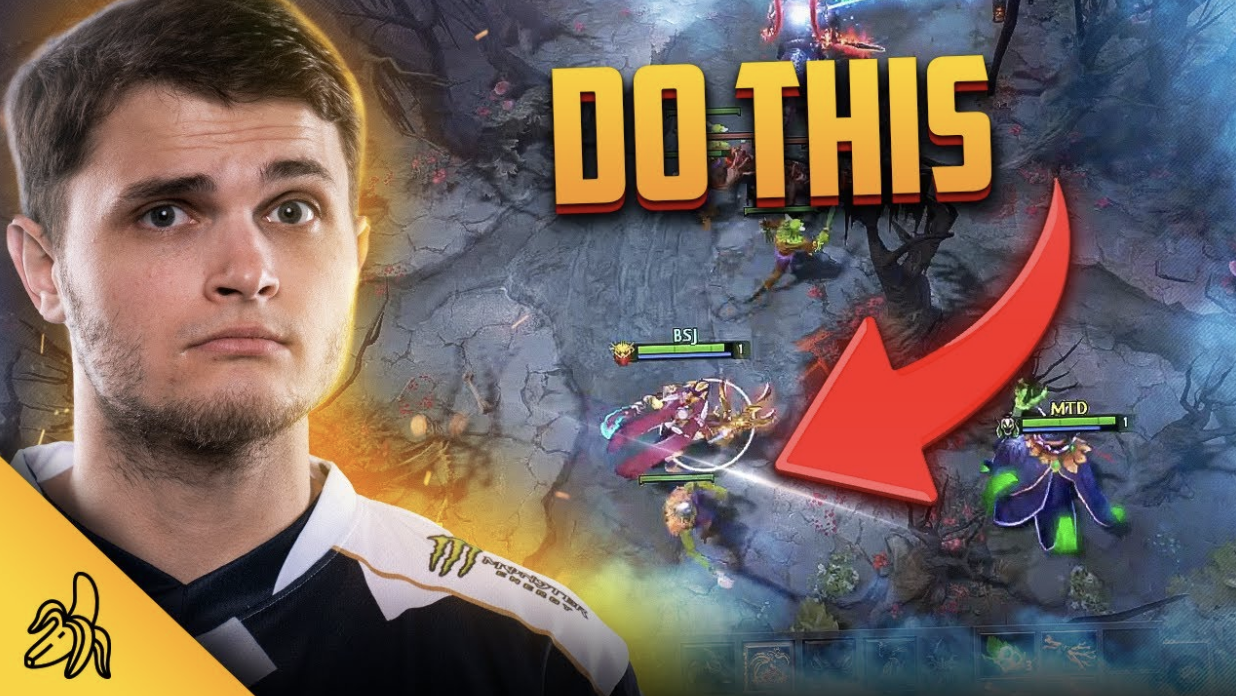Fresh Meat: Helping New Players in Dota 2 ft. BSJ

The Liquid Review
Dota 2 is a game of incredible depth and complexity. With 10 players picking from a pool of 124 heroes and over 200 items to choose, the permutations are endless! As fun as that sounds for the experienced players, that also means that the game has developed quite the reputation for difficulty. Professionals love this as it means they can always find more ways to eek out any advantage they can over their opponents. Meanwhile new players are left to their own devices or rely heavily on friends to teach them the basics. Unfortunately, even that can be a struggle: how do you explain to someone that their character died because of some esoteric mechanic developed in 2005 as a workaround for a glitch in the Warcraft 3 engine?
The problem is that recruiting new players is as necessary as it is difficult. Every game gets better the more people are playing it: the developer has more money for more resources, the quality of matchmaking improves, statistical analysis becomes more reliable. New players are as important as new content, so why has Dota struggled in making this complex game more accessible to fresh faces?
We sat down with our very own Brian “BSJ” Canavan to talk about accessibility in Dota 2. What it takes to hook new players, not just from a “learning the basics” perspective, but a “what brings someone into the Dota 2 community” perspective. What gets them to stick with other players and enjoy it not just for the game, but for the people. We also discuss possible adjustments to matchmaking, Dota Plus quest design, neutral item changes in 7.33, and the reputation that the Dota community has built around the game.
I think there's a big gap that needs to be bridged between bot matches and actual player matches. Most people don’t want to play a hundred bot matches with their friends before moving into real matches. What would be a good way to help bridge that gap?
BSJ: The problem is, you could have a player that's played a ton of Dota but never really gotten better. This is somebody who's played four thousand games but is 400 MMR (Matchmaking Rating) and they could get queued against somebody that’s new to the game even in a ranked match. So I think the biggest issue with that is how exactly do you pair the new players together?
Because for new players what makes them 400 MMR is complete lack of knowledge of what the heroes do. Just general things like “I have no idea what that ability just did.” While the guy that's 400 MMR after four thousand games is going to be that same MMR for a very different reason.
So my suggestion in that regard would be a matchmaking system that takes into account how many games you've played and doesn't treat everybody who's 400 MMR the exact same, putting them in the same game. Because I think a lot of people get verbally accosted by the players that have played for four thousand games. They say stuff like “How could you possibly not know what Lion does?!” and stuff like that. Well yeah the guy’s only played for a month, how would he ever know that?
(Even Day9 jokes about the game being so hard that it’s out to get you)
That’s interesting because the number of players in the 0 to 2000 MMR bracket has decreased greatly thanks to the new Glicko MMR system. So hopefully that can help as well. Now, relating to the new player experience, the game asks you if you've ever played dota before-
BSJ: Yeah they do ask that question when you load in, I've seen it.
Do you think that's something that could be improved to better the starting point for new players?
BSJ: Yeah I think that something like an entry survey could definitely help. I've coached a few people that played League of Legends or HoN (Heroes of Newerth) and even if they're super new to Dota, they do understand the idea and goals of the game. Now, Dota was my first MOBA (Multiplayer Online Battle Arena) so when I loaded in I'm like “Gold? Experience? What am I even trying to accomplish here? I hit level 5, what do I do now?”
Do you think that the new player experience having more integration with Dota Plus or a Battle Pass would be beneficial? Provide objectives similar to the Battle Pass, but have them focus on things that will help a player learn the game?
BSJ: How I would view this is that numbers in the game are nice, but anytime a newer player asks me “How many last hits should I have at 10 minutes? What’s the criteria, what am I going for?” I think those things can be useful but I don't like when those types of goals change the way the person is going to play.
I think the idea of a reward system is very good but the second part is that if the game says, “Pick a hero and you have to play it five to ten times in the next week.” That’s it, that's the goal. The goal is to just learn [a] hero and then the objective is playing five matches as Slardar. But most importantly they [should] get to choose the hero, the game isn’t saying “You have to pick the hero that we assigned to you.”
I do think that a lot of what hero you like is significantly tied to your personality and the way you view playing games. Some people love being the healer, some people love being the damage dealer, some love being the tank. That actually says a lot about them. They'll go from one game to the other, choose the same class, and be the same type of player. So the entry survey could even ask questions like “Have you played other MMORPGs? What kind of role do you normally like?” and then it goes off those answers. Another question I get is “What does this role even do?” If I'm an initiating tank, what role does that? They don't even know that it’s an offlane.

Yeah, I really like that because those Battle Pass style, Dota Plus style objectives come with the issue of, like you said, changing the way you play. Because stacking camps can be good, but do you need to stack 20 camps this game? Is it actually good to stack ancients?
BSJ: “It's 38 minutes. I should probably be worried about Roshan, but I need three more camps to stack.” That kind of thing is like the dota plus quests and I think they're fun and all, but the majority of the quests that I finished I either didn’t notice I finished them or it’s literally mega creeps and I'm like “Guys let me go pick up three bounty runes!” That's the thing that I don't particularly like about the quest system, that it affects gameplay.
Shifting gears, with 7.33, how do you feel about the neutral item changes, particularly the shift to the token system?
BSJ: I thought that was the best change of the patch. So I've run a few subscriber tournaments and what I learned in these tournaments is that if people can ruin the experience for others then somebody is going to find a way to do it. It may be a small minority but they will do it and the majority feels it.
What I mean by that is when it comes to these tokens there was always so much bickering over who got what neutral item. Some games it didn’t happen and some games that happened between three players. But with the token system, I get to choose what's best for me and that's all I have to know. It's also easier for new players because instead of thinking, “There's an Aquila and a Vambrace, I have this hero and that hero, what's the optimal distribution of these items?” Instead, it’s just “I know my hero, and for this game specifically, I want this item.” I think that's good for newer players and I also think it's more enjoyable for higher level players because there's no differing opinions.

So that makes me curious, do you think Dota Plus features like suggested items should be shifted to be available to all players and Dota Plus should be a reward pipeline? Or do you think that aspect of the system is fine as is?
BSJ: It's a good question, let me think. Right now you can only see how much MMR you gained or lost if you have Dota Plus. There's stuff like that that I think being behind a paywall is, technically, very bad. I’m talking about quality of life things.
In regards to tutorials on items, [...] they do have to monetize the game somewhat but putting educational sources behind a paywall… in theory sounds bad. When I say it out loud, I'm like, yeah that does sound bad.
My only other concern would be: how much of dota is about creativity? Is it about learning your own interpretation of what makes a hero optimal? I personally don't think I would have wanted to be told exactly how to play sniper back in the day. When I was learning dota, I had the dumbest build on sniper. I would go mid sniper and I would go Midas, Boots of Travel, Sange & Yasha, Skadi. The whole idea behind the build was “I'm really fast, I get a lot of items, and anybody I hit is really slow.” because that was back when Sange & Yasha slowed targets.
I had a lot of fun with that build. Was that optimal? Probably not, but I also think that games in general have become too try-hard to enjoy sometimes. If they really want to get better at the game and that's why they're playing, I feel like those types of sources are out there for them, on Youtube and Twitch. I don't even know if that's Valve’s prerogative. I think keeping the people that are casual about the game interested to the point where they may become not so casual, that’s what I would target.
(BSJ makes a series of videos aimed at just that, helping casual players understand the game.)
I do agree with you on the point that you might want to do things differently. You want to experiment. I’m much worse than you and even I know that some of the recommendations I see on Dota Plus…
BSJ: It’s a little sus [laughs]. I feel like it's impossible to code Dota to say this is the best thing to do objectively.
Oh absolutely, because it might be the best thing in 98 percent of games, but you might be in those other two percent.
BSJ: And I want people to have that decision. I think that's one of the funnest parts about Dota.
I think that tracks with getting people into the game, making sure they know they do have all these options and aren’t just a victim of modern gaming culture, where it's like here are your spreadsheet-ed plays and builds, this is what’s optimal.

BSJ: I think this is relevant, I had a coaching student who's like 5.8k recently and he literally said he watched my youtube and other educational content and spammed what he was told to spam, picked meta heroes, built the right items, and his explanation was “I don't really understand this game. I just copy people. I copied people and I played some other MOBA, copied other people, and now I’m 5.8k.” I do think that for people like him it's fine. But I think the majority of people don't want that experience.
I don't think that people want to load into a game and be told exactly how they’re supposed to win. At least I'm grateful that I did not have that experience. I wanted to do all my stupid shit that I later found out didn't work like my Shadowblade, Orchid Slark that I went every single game. It's like in hindsight nine thousand gold for zero hp, probably not that great.
But in regards to accessibility, I feel like a lot of what makes DOTA hard for people is how “self-fulfilling prophecy” the community is about “This game's miserable. Don't end your life. Get out of here.” sort of deal. The attitude behind how hard Dota is and how tilting it is. And what I love about Dota is how much it allows you to explore your own curiosity and how much can be done in the game. We literally see innovations on heroes every single patch, no matter what.
(BSJ talks about how Dota’s reputation might not match the reality.)
People are afraid to mess up. They're afraid to not have the perfect neutral item, to not do the perfect build. That's the part of the new experience that I feel like happens with the people being queued into four thousand game 400 MMR players where those guys think they know more than the person who just started, but the fact is, they're 400 MMR. We don't need to cater to that mentality. We don't need to cater to the people that are promoting Dota as this wall that you have to climb in order to even be decent at the game.
I think at the end of the day, Dota has been put in this corner of “If you're a try-hard then play this game. If not, it's not for you.” I think that's the part that makes Dota so daunting to the new players and it's not like that. I think you can play very few games of Dota in a week, the voice lines, the voice acting, the hero personalities. There's amazing things about Dota for casuals.
What do you see as the solution to parts of the community pushing that “Dota is way too hard.” narrative? Given how impactful RTZ has been on the North American Dota community’s mannerisms and attitude, do you think this could be something that starts with pro players and streamers?
BSJ: This makes me think of my goals as a member of the Dota community and as a streamer. Over the last year or so my coaching sessions, whose aim is to make students better while still enjoying the game, have shifted dramatically towards focusing on mentality and self-awareness as a means of gaining MMR. There is certainly a plague of mental health issues within the Dota community and, in my experience, many players started playing this game as a means to escape or cope with real life problems. This causes them to draw a correlation between Dota and their unhappiness that is not real.
Dota, like many things, is not something that brings happiness to a miserable person. Dota will only make your problems worse if you have them. It brings out the worst in people that are hurting and brings out the best in those that are healthy and happy. That is what makes Dota such a beautiful game. I believe the best thing that can be done is drawing attention to the mental health crisis within the Dota community and encouraging members to reflect and gain self awareness, promoting a healthier experience for themselves and those around them. As a streamer, I strive to set the best example that I can.

Writer // Joe Chilen
Graphics // Brenda Cardoso














